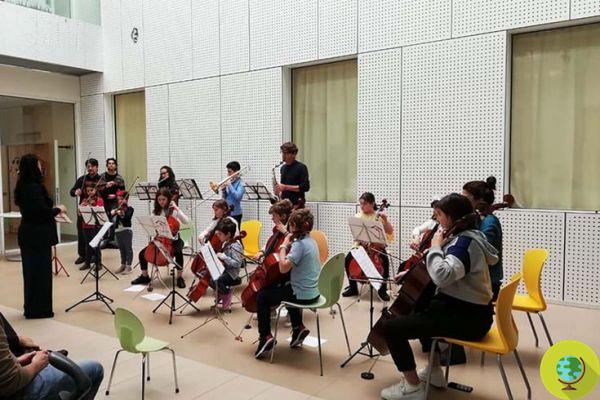
During adolescence, our children's brains "open" to listening to voices outside the family context, as shown by this study
Don't store avocado like this: it's dangerousAnyone who has a teenage child knows this feeling well: sometimes it feels like talking to a wall! However, apparently, it would not only be a parental perception, but this phenomenon would have, according to a new study, a real scientific basis. From the age of 13, in fact, children lose "attachment" with their mother's voice and begin to tune in more often to unknown voices - a way to separate from their parents and integrate outside the family environment.
This change in adolescent brain perception of parental voices was demonstrated by a study conducted by the Stanford School of Medicine, which analyzed functional brain scans to show how adolescents begin to detach themselves from family and mom's voice. and dad.
As the authors of the study explain, ever since the baby is in the mother's womb, it "tunes in" to the mother's voice and this connection lasts throughout childhood. However, once he reaches the stage of adolescence, the boy becomes more and more attracted to the voices of friends and schoolmates and his brain also demonstrates a greater sensitivity to the voices of people who do not belong to the family unit.
Sensitivity to the mother's voice is not lost, given that the adolescent brain is more receptive to all voices than a younger brain that focuses almost exclusively on the voice of the parents (in particular, on that of the mother). The widening of attention to new voices is normal, according to the researchers, and is part of the natural growth process.
We know that the child becomes independent at some point in their growth, and we hypothesize that this must be accelerated by an underlying biological signal - explains Professor Vinod Menon, among the authors of the study. We have found that there is a signal that helps teens interact with the world and form connections that enable them to be socially savvy outside of their families.
According to the results of the study, the mother's voice would trigger a series of unique responses in the brains of children under the age of 13 (as has already been shown by another search conducted in 2016) and would activate brain areas not activated by the stimulus of other voices - including reward centers and those for processing emotions and memories. It is through the mother's voice that the child knows the world and develops his own language. (Read also: The tone of voice you use to talk to your children affects their emotional development)
The experiment
The study was conducted on some adolescents between the ages of 13 and 16, all with an IQ above 80 and without particular neurological or psychiatric problems. All participants were raised by their biological mothers with whom they still live.
The boys were played with some recordings, made by both their respective mothers and unknown women: in both cases, these were short sequences of meaningless words - so that the boys' brains would not respond to meaning or emotional content. audio input. Each teenager listened to different audios, both of his own mother and unknown women, in completely random order.
Just like with younger children, teenagers recognized the mother's voice on almost all occasions (97% of the time). However, the analysis made with magnetic resonance has highlighted how all the voices, both the maternal and the unknown ones, have provoked the activation of the same regions of the brain, unlike what happens for younger children who appear to be more sensitive to the voice of the mother.
To not miss our latest news click here and select the star at the top right.
Follow your Telegram | Instagram | Facebook | TikTok | Youtube
Fonte: Journal of Neuroscience
We also recommend:
- The 7 most popular parenting styles: which one do you recognize yourself in?
- What is Huggy Wuggy and why you shouldn't let your child play with it if he's under 13
- Make your children play sports from an early age, their health is at stake, but also their academic performance

























